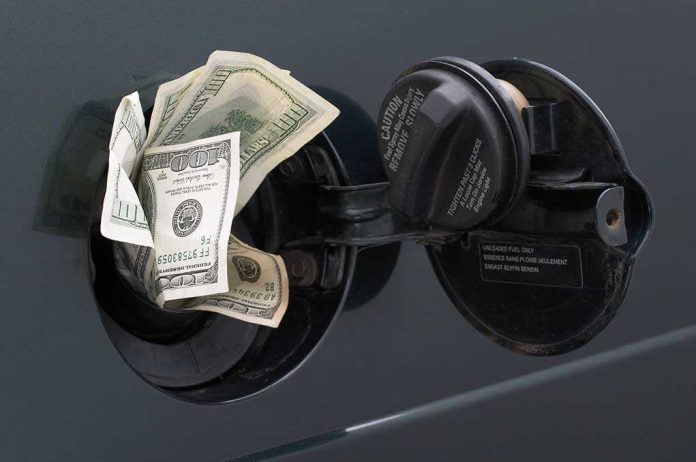
Mexican cartels are cashing in on fuel theft, and the repercussions are rippling across the border, threatening U.S. interests and security.
At a Glance
- Mexican cartels have turned fuel theft into a lucrative venture, rivaling drug trafficking.
- Stolen oil is being smuggled into the U.S., disguised as waste oil to avoid detection.
- U.S. and Mexican authorities are cracking down, but entrenched corruption hampers efforts.
- The proceeds from these illicit activities fund broader criminal enterprises, including drug and weapons trafficking.
Cartels Diversify Revenue Streams
Fuel theft, or “huachicol,” has emerged as a major revenue stream for Mexican cartels, alongside drug trafficking. For over a decade, cartels like CJNG, Sinaloa, and Gulf have moved beyond drugs, targeting Mexico’s state-owned oil company, Pemex. Billions have been lost due to theft and corruption, with cartels bribing employees and drilling illegal taps into pipelines. The U.S. has seen a surge in stolen oil smuggled across the border, often labeled as waste oil to evade detection.
Authorities on both sides of the border are grappling with this complex web of crime. U.S. agencies, including OFAC and FinCEN, have stepped up actions, but the cartels’ influence through violence and corruption remains a formidable barrier. The Biden administration’s efforts to disrupt these networks through sanctions and cooperation marked a start, but the deeply rooted corruption in Pemex and local governments complicates progress.
The U.S. Border: A Hotbed for Illicit Oil
The U.S.-Mexico border, especially around Veracruz, Altamira, and Monterrey, has become a hub for storing and transiting stolen oil. This illicit oil is then sold on black markets in Mexico, the U.S., and Central America, with profits fueling further criminal operations. Cartels have diversified their criminal enterprises, funneling proceeds into drug and weapons trafficking. Recent sanctions targeting CJNG’s fuel theft network, including the May 2025 OFAC sanctions, highlight the scale and sophistication of these operations.
Despite these efforts, cartels continue to generate tens of millions from fuel theft. Law enforcement’s focus extends beyond the supply chain to financial flows, aiming to disrupt money laundering and profit repatriation. The adaptability of these criminal networks poses an ongoing challenge, with cartels constantly shifting tactics in response to enforcement pressure.
Impact on Communities and Industries
The consequences of cartel-driven fuel theft are far-reaching. In Mexico, billions in lost revenue undermine public services and economic stability. Local communities bear the brunt of increased violence and environmental hazards from pipeline explosions. In the U.S., the energy sector faces distorted markets due to discounted illicit oil. The financial sector is under pressure to detect suspicious transactions, increasing compliance burdens on banks and financial institutions.
Experts warn that fuel theft is rivaling drug trafficking as a revenue source for some cartels, making it a top priority for law enforcement. The entanglement of energy, finance, and organized crime presents unique challenges, requiring cross-sectoral cooperation and international coordination. Sanctions and alerts might deter some actors, but the cartels’ adaptability keeps them one step ahead of current enforcement measures.
Sources:
Money Laundering News Analysis




